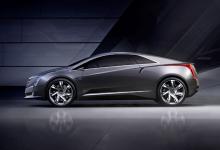
The growing market for electric vehicles (EVs) and hybrids world-wide will help reduce urban pollution in many areas, while also cutting reliance on oil for fuel. This switch away from reliance on oil for fuelling vehicles is undoubtedly a good thing and will help address pollution on a localised level and climate change right across the globe.
However, it will also bring radical changes to the way that road development is funded. In many countries around the world it is fuel taxation that helps pay for road infrastructure. In many countries, and including most of Europe, these taxes are added to the general funding pot that governments use to pay for everything, including infrastructure. In the US, a portion of the price of each litre of fuel goes directly to the Highway Trust Fund, or to local state taxes to pay for road infrastructure. Lower demand for fuel for vehicles will reduce the income from fuel taxation.
While hybrid vehicles and EVs may have a much lower CO2 footprint, they still take up space on the highway network and cause wear and tear to the roads.
With fuel prices being far higher in China and Europe, and China in particular keen to cut air pollution in major cities, these markets are already seeing a faster take-up of EVs. The market for these low-emission vehicles will increase. In China, road infrastructure is funded by central and local governments and fuel taxation may be less of an issue. But in Europe and many other markets the switch to low-emission vehicles could trigger a move towards other road funding methods, including road user charging.
Low fuel prices mean that the US will probably be later to adopt EVs but solutions are already being suggested to address the coming funding shortage. A report released by the American Road & Transportation Builder Association (ARTBA) could point the way forward. The report was developed by ARTBA’s Transportation Investment Advocacy Centre (TIAC) Council and suggests a model for generating state transportation revenues through registration fees on electric and hybrid electric vehicles. This report was developed to provide state legislators and transportation advocates a starting point for crafting legislation to enact similar user fees in their states, or increase transportation funding through varying methods.
“Several states have enacted these types of fees. Although the number of electric and hybrid electric vehicles is a small part of the total US fleet, that number is expected to grow in the future, and states are looking for ways to make sure they are contributing to transportation programmes,” said ARTBA chief economist and TIAC director, Dr Alison Premo Black.









